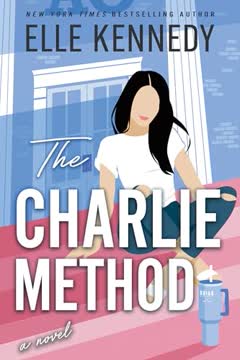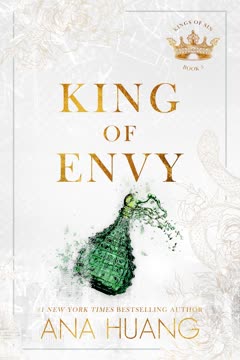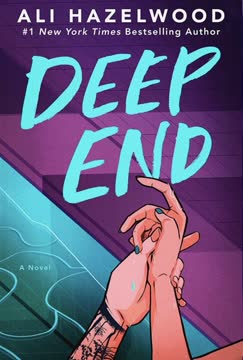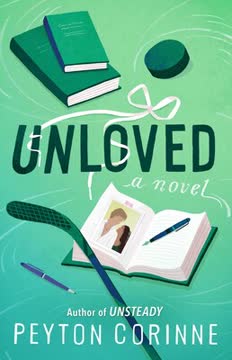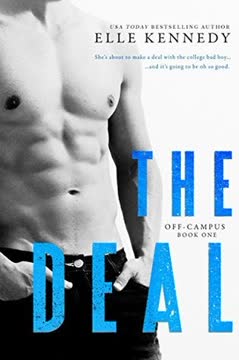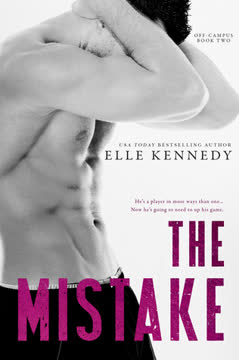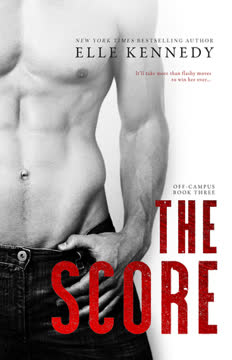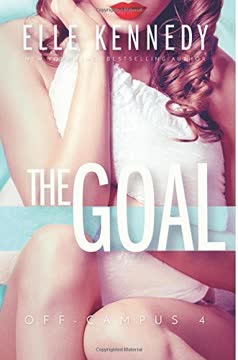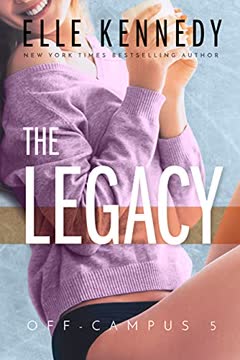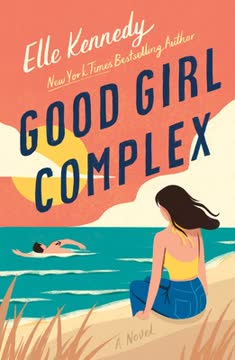Key Takeaways
1. The Method: Navigating a Double Life
I am and will forever be an obsessive nerd. Yet I also hook up with football players in parking lots.
A meticulous persona. Charlotte Kingston, a diligent STEM student and respected Delta Pi sorority member, meticulously curates an image of perfection. She employs "The Method"—a detailed decision-making framework—to manage her life, from academic choices to social interactions, ensuring she always appears responsible and self-assured. This persona is a shield against perceived judgment from her family and sorority sisters, who expect nothing less than flawless conduct.
The hidden wildness. Beneath this polished exterior lies Charlie, a spontaneous, risk-taking woman who craves excitement and unconventional experiences. This alter ego indulges in clandestine hookups, races high-performance sports cars at a private track, and explores her kinky desires through anonymous online chats. The contrast between Charlotte and Charlie highlights her struggle to reconcile societal expectations with her authentic self, seeking outlets where she can truly "just be."
The Method's limits. While The Method provides structure and a sense of control, it ultimately cannot contain the complexities of human emotion or the unpredictable nature of life. As Charlotte's hidden desires and unexpected relationships begin to intertwine with her public life, the rigid framework of her method proves insufficient, forcing her to confront the limitations of her carefully constructed double life and the need for genuine self-acceptance.
2. Unveiling Identity: The Search for Biological Roots
I want to understand, I suppose. I want to know who my birth parents are. Or were, if they’re no longer alive.
A nagging curiosity. Despite a loving and supportive adoptive family, Charlotte feels a persistent, unspoken need to understand her origins. Adopted from Seoul at eight months old, she embarks on a journey to find her biological relatives through a DNA ancestry site, hoping to uncover a missing piece of her identity. This quest is driven by a desire for answers about her birth parents and the circumstances of her abandonment, questions that have quietly haunted her for years.
The unexpected brother. The search yields a startling result: a biological brother, Harrison Lee Stevens, living in the United States. This discovery is both thrilling and overwhelming, introducing a new, complex layer to Charlotte's understanding of family and self. Harrison's difficult childhood, marked by abuse and abandonment, starkly contrasts with Charlotte's privileged upbringing, creating a chasm of guilt and resentment that challenges her idealized vision of finding a biological connection.
A painful truth. Meeting Harrison forces Charlotte to confront uncomfortable truths about her past and the stark differences in their lives. His bitterness and accusations about her adoptive parents' potential knowledge of his existence deeply wound her, leading to a painful confrontation where he destroys the last tangible link to her past—a stuffed bunny from the orphanage. This devastating act pushes Charlotte to finally open up to her adoptive family, revealing her deepest insecurities about belonging and their love.
3. The Unconventional Connection: Love with Two
I’m dating Will. As in genuinely dating him—it’s not only a physical thing. But I’m also dating Beckett Dunne. Will’s teammate.
A shared desire. Charlotte's online exploration of her kinky side leads her to "LARS & B," a joint profile belonging to Will Larsen and Beckett Dunne. What begins as anonymous sexting quickly evolves into a real-life, polyamorous relationship. The initial attraction is undeniable, fueled by their shared adventurousness and the intoxicating dynamic of being desired by two distinct, yet complementary, men.
Complementary partners. Will, her lab partner, is the steady, analytical, and protective "boy next door" who offers emotional grounding and unwavering support. Beckett, her classmate, is the charismatic, wild, and perceptive "Australian mountain man" who pushes her boundaries and encourages her to embrace her fearless side. Together, they provide a unique balance of passion, comfort, and understanding, making Charlotte feel seen and accepted in all her multifaceted glory.
Beyond the physical. While their relationship is intensely sexual, it quickly deepens into genuine emotional connection. Will and Beckett not only satisfy Charlotte's high libido but also provide a safe space where she can shed her carefully constructed personas. They listen to her anxieties, celebrate her achievements, and challenge her to confront her fears, fostering a bond that transcends mere physical attraction and becomes a source of profound personal growth.
4. Confronting Shame: Embracing Authentic Desire
I’ve never felt more ashamed than when I left your house that morning.
The weight of judgment. After her first night with Will and Beckett, Charlotte is overwhelmed by shame, deleting their chat app and retreating into her "Charlotte" persona. This reaction stems from a deep-seated fear of judgment, particularly from her sorority and family, who embody the traditional expectations she struggles to uphold. The idea of being perceived as "sleazy" or "slutty" clashes violently with her desire to be seen as perfect and respectable.
Beckett's powerful message. Beckett's heartfelt text, assuring her that she has "nothing to be ashamed of" and celebrating her "wild, fearless side," becomes a turning point. His words resonate deeply, challenging her internalized shame and prompting her to reconsider her self-perception. This message, coupled with Will's understanding of her internal conflict, helps Charlotte realize that her shame is external—a projection of imagined disapproval—rather than a reflection of her true feelings.
Embracing authenticity. The public outing of her relationship with Will (and the implied polyamory) by her ex-boyfriend, Mitch, at the Presidents' Gala forces Charlotte to confront her fears head-on. Instead of crumbling, she finds strength in her partners' unwavering support and Diana's fierce defense. This experience, though initially mortifying, ultimately liberates her, allowing her to embrace her authentic desires and the unconventional nature of her love, realizing that the opinions of those who truly matter are rooted in acceptance, not judgment.
5. Healing Past Wounds: Vulnerability and Trust
I’m scared because I love you. I love you, and I don’t know what the hell to do with that.
Beckett's hidden trauma. Beneath Beckett's laid-back charm and aversion to intimacy lies a profound, unhealed wound: the death of his high school girlfriend, Shannon, from leukemia. He fabricated a story of her cheating to avoid pity, creating a protective wall around his heart. This trauma makes him resistant to deep emotional connection, fearing the pain of loss and the vulnerability that comes with love.
Charlotte's unwavering presence. Despite Beckett's initial reluctance to open up, Charlotte's persistent empathy and refusal to let him push her away gradually break down his defenses. Her decision to sleep in his bed, offering comfort without demands, creates a safe space for him to finally confess his truth. This act of vulnerability, coupled with Will's understanding, allows Beckett to acknowledge his lingering pain and his fear of losing Charlotte, leading to his confession of love.
A foundation of trust. The shared vulnerability strengthens the bond between all three. Charlotte's own childhood fears of abandonment, revealed during a panic attack, are met with unwavering support from both Will and Beckett. Their commitment to her well-being, even when it means sacrificing their own desires (like the "no sex while high" rule at the rave), builds a deep foundation of trust. This mutual openness allows them to navigate their complex emotions and past traumas, fostering a love that is both passionate and profoundly healing.
6. The Weight of Expectations: Family, Career, and Self
You’re always trying to be perfect, because you think if you slip up even once, your family won’t love you as much.
The burden of perfection. Charlotte's drive for perfection stems from a deep-seated insecurity about her adoptive status, fearing that any misstep might jeopardize her family's love. This manifests in her relentless pursuit of academic excellence, her meticulous adherence to sorority rules, and her reluctance to reveal her true self. She believes she must constantly prove her worth, leading to immense pressure and anxiety.
Will's political dilemma. Will faces similar pressures from his congressman father, who meticulously curates his son's image for political gain. Will's struggle to assert his own career aspirations against his father's expectations mirrors Charlotte's battle for self-determination. The offer to work for his father's political rival presents a stark choice: betray his father's image or sacrifice his own professional integrity and happiness.
Beckett's existential drift. Beckett, too, grapples with post-graduation uncertainty, feeling a pull back to his native Australia but lacking a clear career path. His father's job offer in Sydney, coupled with his mother's reluctance to move, highlights the complexities of family expectations and personal desires. His initial resistance to commitment, rooted in past trauma, also reflects a broader struggle to define his future beyond the immediate.
7. Redefining Family: Love Beyond Bloodlines
Blood doesn’t make a family—love does. And we love you more than anything in this world.
The adoptive family's unwavering love. Charlotte's deepest fear—that her adoptive parents would disapprove of her choices or feel betrayed by her search for biological roots—is ultimately unfounded. When she finally confesses everything, including her polyamorous relationship and plans to move to Sydney, her parents respond with unconditional love and acceptance. They reassure her that her worth is not tied to perfection or biological ties, but to who she is as their daughter.
A cascade of confessions. This moment of vulnerability triggers a cascade of confessions from her siblings: Oliver's impending divorce and Ava's coming out as a lesbian. These revelations underscore a shared family dynamic of hiding truths for fear of judgment, ultimately leading to a collective embrace of authenticity. The family's response reinforces the idea that love and support transcend conventional expectations, creating a stronger, more open bond.
Harrison's path to acceptance. Charlotte's biological brother, Harrison, initially struggles with deep-seated resentment over his difficult childhood compared to hers. His anger leads him to destroy their shared childhood toy, Tokki, symbolizing his rejection of their past. However, his subsequent apology, acknowledging his own pain and expressing a desire for a fresh start, opens the door for a new kind of relationship. His eventual integration into Charlotte's adoptive family, bringing flowers to her mother, signifies a healing of old wounds and a redefinition of family based on mutual respect and love.
8. Choosing Happiness: A Future Forged Together
I love you, Charlie. And I know that what we have—it’s right. For all of us.
A collective leap of faith. As graduation looms, the future of Charlotte, Will, and Beckett's unconventional relationship hangs in the balance. Beckett receives a job offer in Sydney and, seeing Charlotte's acceptance to a grad program there, proposes that all three move to Australia together. This bold suggestion challenges their individual uncertainties about post-college life and forces them to consider a future where their love can thrive without compromise.
Prioritizing connection. Will, initially torn by a compelling political campaign job in Washington D.C., ultimately rejects the offer. His decision is a powerful affirmation of his love for Charlotte and Beckett, prioritizing their shared future over a career path dictated by external expectations. This choice, made after deep introspection and a realization of what truly brings him happiness, solidifies the foundation of their commitment to each other.
A new beginning. The book concludes with Charlotte, Will, and Beckett embarking on their new life in Sydney. This move symbolizes their collective embrace of an unconventional path, choosing a future where they can be authentic, vulnerable, and deeply connected. Their journey, from managing double lives to confronting past traumas and societal judgments, culminates in a powerful testament to the idea that love, in its most genuine forms, creates its own rules and builds its own family, wherever that may be.
Last updated:
Review Summary
The Charlie Method received mixed reviews, with an average rating of 3.5 out of 5. Some readers praised the spicy romance and character development, while others felt the plot was messy and lacked depth. Many were disappointed that the anticipated MMF relationship was primarily MFM. Criticisms included pacing issues, underdeveloped subplots, and an imbalance between the three main characters. Positive aspects mentioned were the humor, emotional depth, and the inclusion of characters from previous books. Overall, opinions were divided on whether the book lived up to expectations.
Campus Diaries Series
Similar Books
Download PDF
Download EPUB
.epub digital book format is ideal for reading ebooks on phones, tablets, and e-readers.
